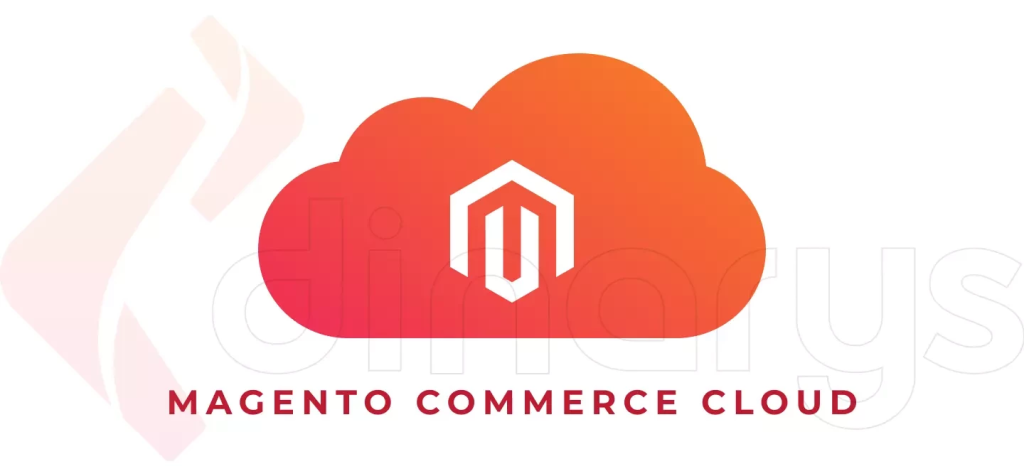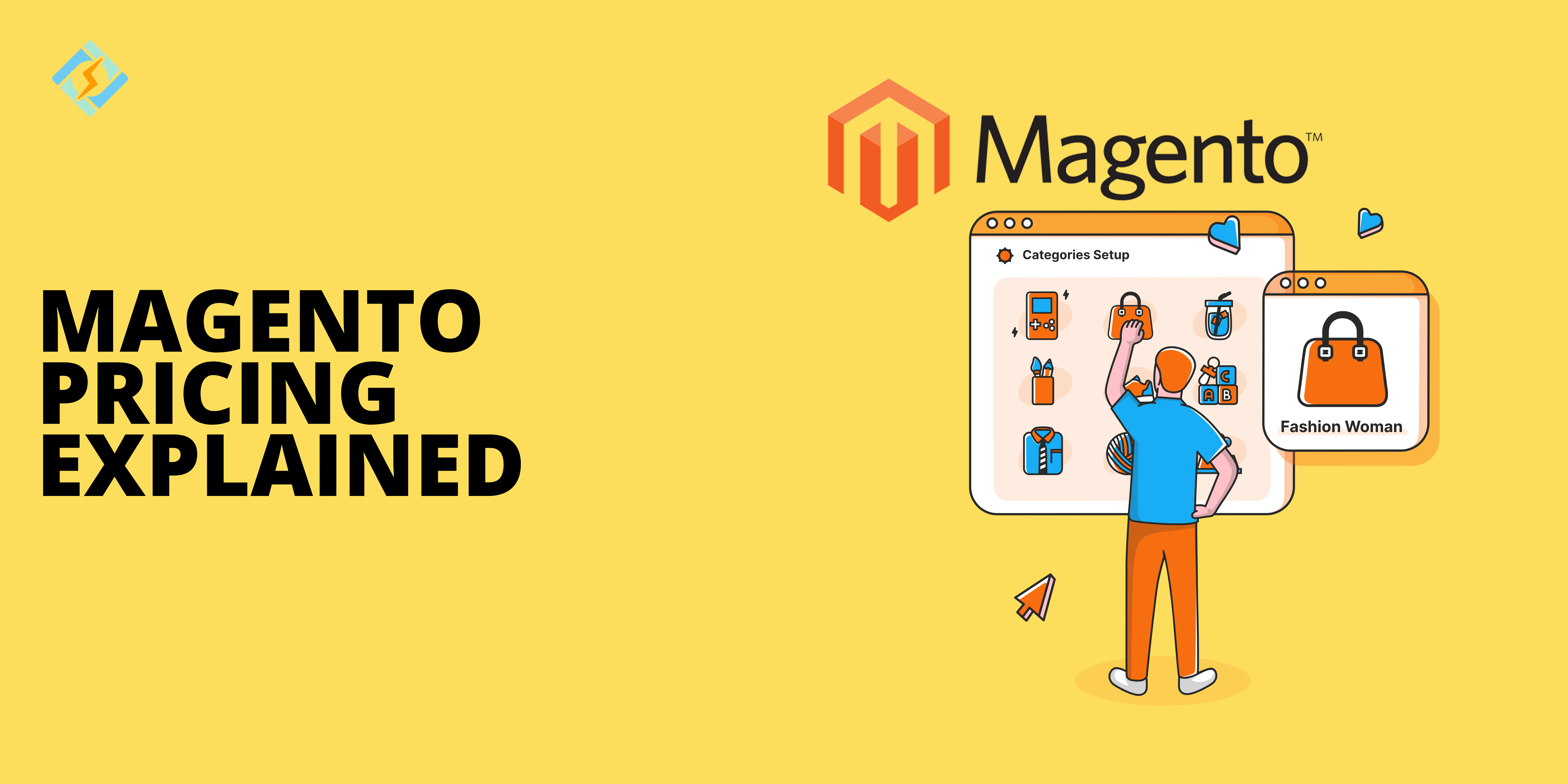Magento is an incredible platform to launch your online store. With advanced features and comprehensive add-ons, such as Elasticsearch, it provides the perfect environment to turn leads into paying customers. However, with no official source citing how much you would need to invest into the store, it can sometimes get confusing.
This guide will walk you through Magento pricing in detail, providing nitty-gritty details that will set you up for success in the long run.
Magento Pricing Categories
To understand the Magento pricing, it is essential to note that there are two basic types of Magento stores that you can opt for.
The Open Source Community Platform
Magento open source platform is free to download and use. It is the best option for small to medium-sized businesses, startups, or developers looking to start out in the market without much investment. That being said, it does require additional fees, such as domain, hosting, and all, which we would discuss later on.
The community driven platform has all the basic ecommerce functionalities, such as inventory management, checkout, user accounts, and more. However, it does not feature any automation or B2B features. You would need to integrate third party features for advanced features, such as reporting.
It is your next-door community driven platform that is supported on forums, which makes it a highly supported tool.
Get exclusive access to all things tech-savvy, and be the first to receive
the latest updates directly in your inbox.

Magento Commerce
Magento commerce is the paid version of the platform with two types of options available; On-Premises and Commerce Cloud.
Both have different Magento pricing options that we shall talk about later on. However, this is the best approach for businesses with higher requirements of security, scalability, and support. Magento Commerce has all the features that open source has to offer along with advanced B2B features, marketing tools, reporting, account management, hosting/ scaling, and security features like backups.
Magento commerce also has full support from Adobe, including patches, updates, and enterprise-level customer support.

Magento Pricing – Open Source/Community Edition
The Magento pricing for open source community edition are as follows:
- Domain Name
- Cost: $10 – $400 per year.
- Details: Domain name is essential for your online presence, if you require a premium name it might cost higher.
- Hosting
- Cost: $100 – $500 per year for shared hosting; higher for dedicated or cloud hosting.
- Details: Adequate hosting is essential for efficient performance and scalability.
- SSL Certificate
- Cost: $50 – $300 per year.
- Details: Ensures safe and secure transactions.
- Design and Themes
- Cost:
- Free themes: $0.
- Premium themes: $50 – $500.
- Custom design: $5,000 and above.
- Details: Affects user experience.
- Cost:
- Extensions:
- Cost: $60 – $600 per extension.
- Details: Essential for functionality, which is not available in the default setup.
- Development and Maintenance:
- Cost:
- Development: $1,800 – $10,000 or more, depending on complexity.
- Ongoing maintenance: Varies based on site requirements.
- Details: Important for customizations, patches, and technical support.
- Cost:
Magento Pricing – Commerce Edition
Magento, which is now rebranded as Adobe Commerce offers two paid versions; Adobe Commerce On-Premise and Adobe Commerce Cloud. Here is the total cost breakdown of both;
Adobe Commerce On-Premise
- License Cost:
Starts at $22,000 per year, with tiered pricing based on annual Gross Merchandise Value (GMV).
- Additional Expenses:
- Hosting: Since this edition is self-hosted, businesses need to invest in reliable hosting solutions, which can range from $5,000 to $15,000 annually.
- Backup Systems: Approximately $2,000.
- Software Licensing: Around $1,500 per server.
- Development and Maintenance: Costs vary based on the complexity of the site and required customizations.
Adobe Commerce Cloud
- License Cost:
Starts at $40,000 per year, with pricing based on annual GMV.
- Included Services:
- Managed Hosting: Utilizes cloud infrastructure, eliminating the need for separate hosting expenses.
- Security: Enhanced security features, including DDoS protection and Web Application Firewall (WAF).
- Performance Optimization: Integrated Content Delivery Network (CDN) and performance monitoring tools.
- Support: 24/7 technical support and dedicated account management.
- Additional Costs:
- Custom Development: Depending on specific business needs, development costs can vary significantly.
- Extensions and Integrations: Additional functionalities may require purchasing third-party extensions.
Additional Costs For Running A Magento Store
There are some additional costs for running a Magento store, whether you choose the free or the paid version. These additions enhance functionality and user experience.
- Payment Processing: 1.5%–3.5% per transaction (depends on the payment gateway).
- Marketing & SEO: $100 – $2,000/month for tools and services.
- Analytics & Reporting: $0 – $1,000/year or more.
- Third-Party Integrations: $500 – $5,000 or more (one-time or subscription-based).
CyberPanel for Magento Hosting
You can use CyberPanel, a web hosting control panel to set-up a Magento store for absolutely free!
However, to work with extra add-ons, you can subscribe to the monthly, yearly, or even a lifetime offer. Pricing starts from as low as $6.99 per month.

Is Magento Worth the Investment? – Conclusion
Magento Commerce Cloud is definitely worth the investment due to its scalability, robust features, and comprehensive support. It is a strong contender if your business is most likely to boom in the upcoming years as it prioritizes growth, performance, and functionality.
However, small and medium-sized businesses would find the open-source version better and budget-friendly!
Frequently Asked Questions – Magento Pricing
1. What are the primary costs for running a Magento store?
Costs include domain name, hosting, SSL certificate, extensions, themes, development, and maintenance. Payment processing fees and marketing tools also add to the expenses.
2. What is the difference between Magento Open Source and Magento Commerce?
Magento Open Source is free with basic features, while Magento Commerce offers advanced tools like B2B functionality, enhanced scalability, and customer segmentation for an annual fee.
3. Do I need a dedicated server to host Magento?
A dedicated or high-performance hosting solution is recommended for larger Magento stores to ensure smooth performance and scalability.



